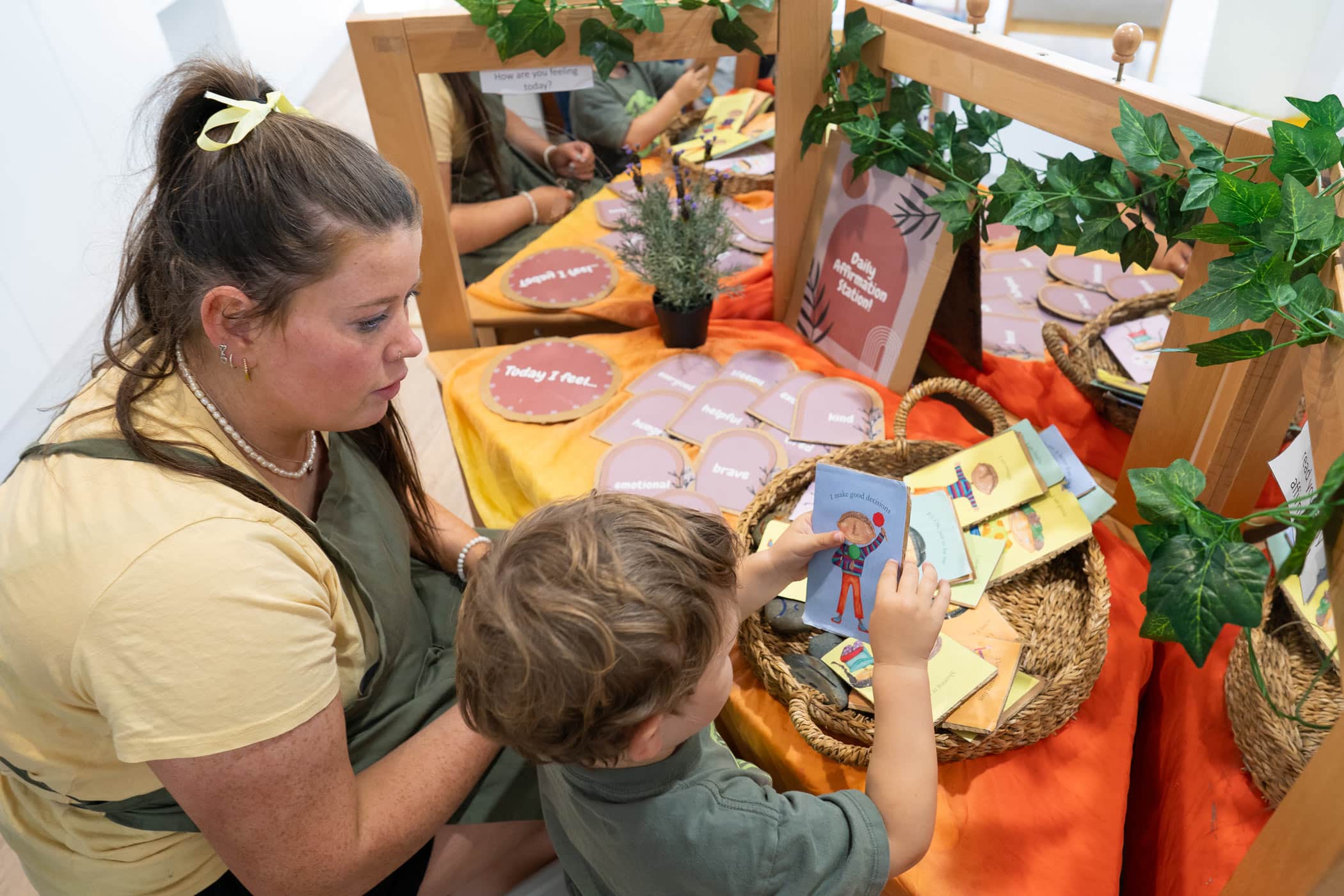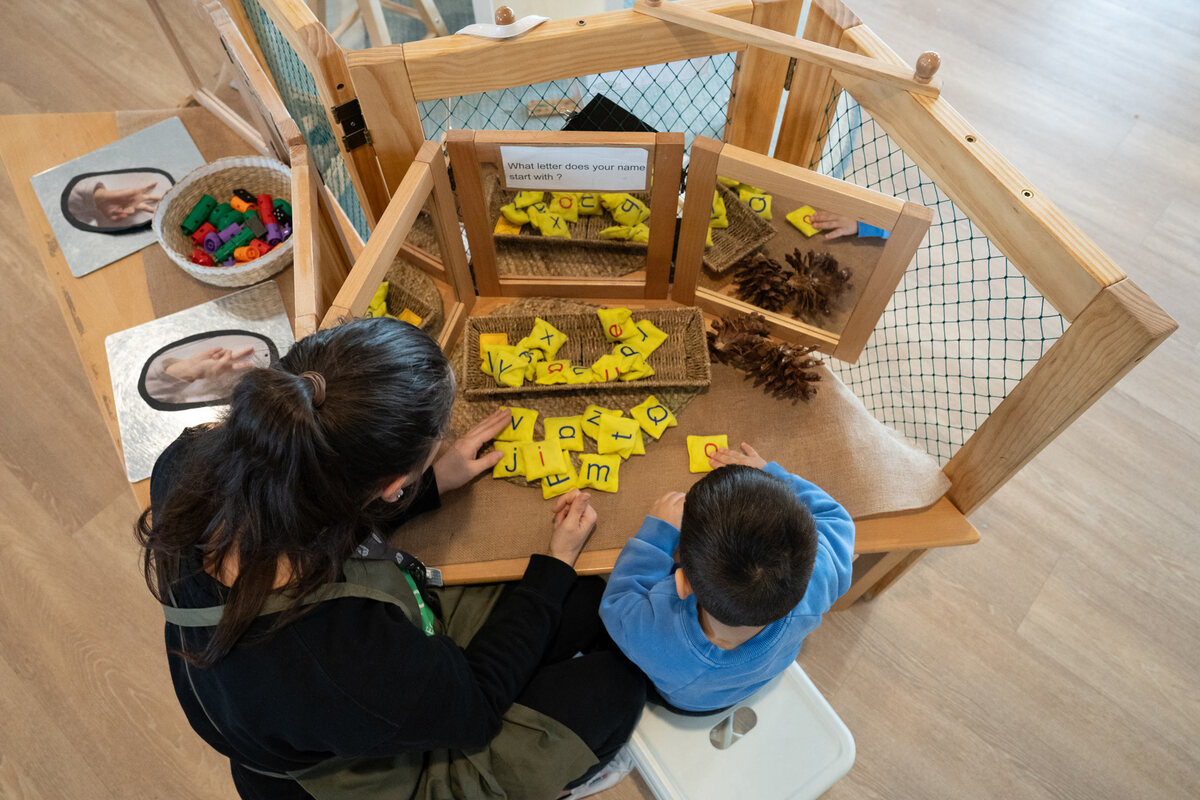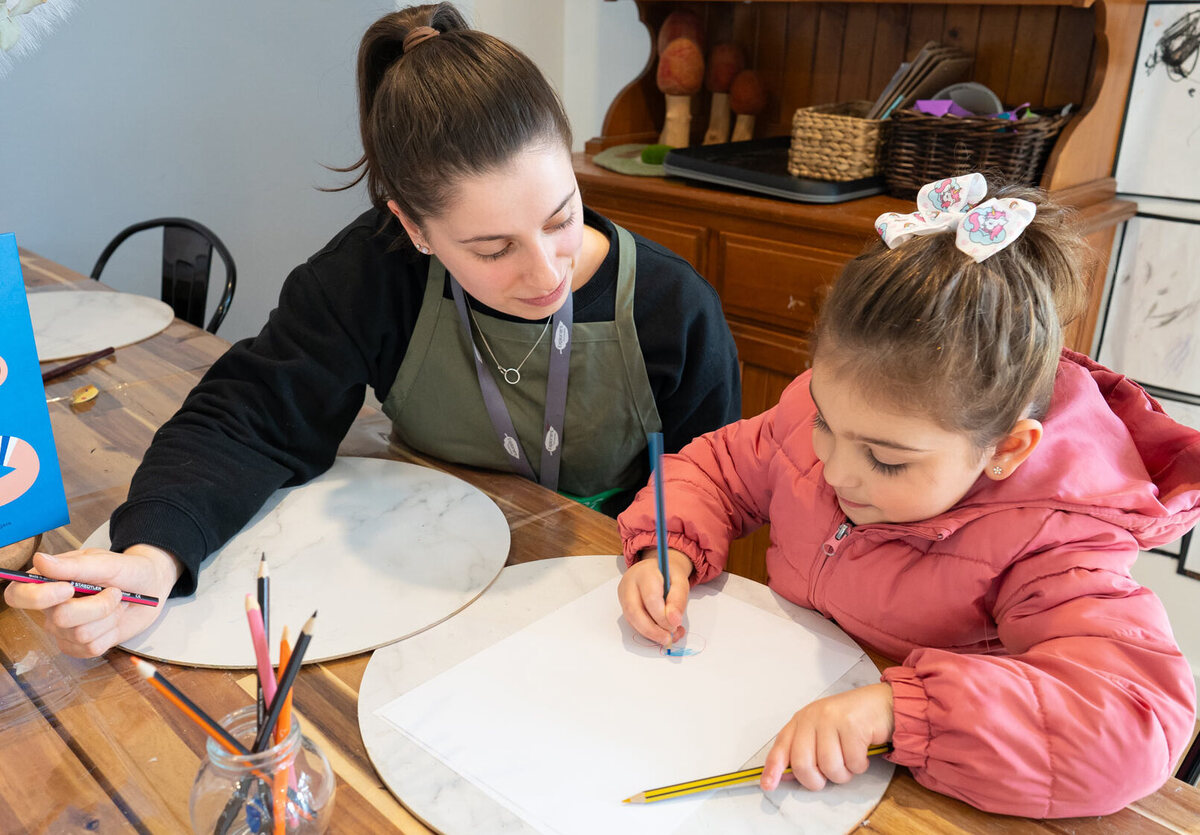Long Day Care and Sessional Kindergarten: What’s the Difference?
4 July 2023

Are you tossing up between long day care and sessional Kindergarten? What if we told you that you can get the best of both worlds through integrated Kindergarten? Read on for our breakdown of these two early learning journeys 👇
The Victorian Government’s Best Start, Best Life program, which has pledged billions into the early learning sector, is generating plenty of buzz around long day care (LDC) centres and sessional Kindergartens. But what exactly is the difference between these two forms of early education, and how do they impact your child’s transition into primary school?
In this post, we break down the key differences between sessional Kindergarten and LDC, as well as provide some handy insight into Free Kinder!
Long Day Care (LDC)
LDC, often called ‘childcare’ or ‘day care’, are centre-based early learning services provided by childcare professionals (educators) for children as young as six weeks old to school age (six years old in Victoria).
These centres develop their own curriculums guided by the Early Years Leaning Framework (EYLF). Additionally, LDC services provide meals and offer a range of extracurricular activities such as languages, sports, gardening, and multi-sensory workshops.
LDC centres can be privately or government owned, family-run, or operated by local community groups. However, all must meet the National Quality Standard (NQS) and are assessed and rated accordingly.
Importantly, all LDC educators are required by the Department of Education to have completed, or be actively working towards, a recognised ACECQA (Australian’s Children Education and Care Quality Authority) qualification:
- Certificate III in Early Childhood Education
- Diploma of Early Childhood Education
- Bachelor of Education (Early Childhood) or equivalent
Educators are also required to have:
- A Valid Working with Children Check
- First Aid Training
- CPR Training
- Asthma and Anaphylaxis Training
- Child Protection Training
Additionally, LDC centres operate longer hours than sessional Kindergartens, opening as early as 6am and closing as late as 7pm. Ultimately, this accommodates working and/or studying parents and guardians.
In short, the flexibility of LDC allows parents to enrol their child into care depending on their specific needs, rather than their provider’s schedule.

Sessional Kindergarten
Sessional Kindergarten, or ‘preschool’, is a one-to-two-year program for three and four-year old children. Notably, sessional Kindergarten differs from LDC as they operate on specified session times. Often, these are in three to five-hour blocks over two-to-three days per week.
Moreover, sessional Kindergarten can be run by local governments, churches, private companies, or independent schools and vary in fees and funding. They’re typically more formal than LDC as children often have to bring their own food, learning materials, and even wear uniforms in some services.
Kindergarten teachers at sessional Kindergarten must hold a tertiary qualification:
- Graduate Diploma of Early Childhood Education
- Bachelor of Education (Early Childhood)
- Master of Teaching (Early Childhood)
In Victoria, Kindergarten for three and four-year old children is not compulsory. Nevertheless, many parents enrol their child into sessional Kindergarten or LDC with integrated Kindergarten programs before beginning primary school.
Integrated Kindergarten
At Explorers, we offer an integrated Kindergarten program within our long daycare Centres which is guided by Bachelor qualified teachers across the week for our three and four-year-old children. This program gives children first-hand knowledge and confidence to begin their school journey.
Our Reggio Emilia-inspired program is carefully designed to ease children into the rhythm of primary school, rather than forcing them into a strict routine that can be overwhelming and even traumatic for some children.
We focus on five key areas of your child’s development to best prepare them for their transition to primary school:
- Physical and motor skills
- Emotional and social regulation
- Cognitive learning
- Language abilities
- Emotional resilience
Overall, integrated Kindergarten gives you the best of both worlds. Children receive Kindergarten-quality education and parents benefit from the flexibility of LDC.

Kindergarten Funding and ‘Free Kinder’
What is Kindergarten Funding?
Kindergarten Funding is not the same as Free Kinder. Rather, Kindergarten Funding is funding provided directly from the Government to the childcare service you’ve nominated. When you enrol your child into Kindergarten, you are required to ‘claim funding’ with only ONE Kindergarten service. The Government will then allocate funds to that service for learning materials, excursions, Kindergarten Teacher wages, etc.
What is Free Kinder?
Free Kinder supports families to access a funded Kindergarten program by providing a discount of up to $2050 per year to offset the out-of-pocket cost of your fees.
It’s important to note that children can only receive Free Kinder funding at one service. Therefore, if you’re enrolled at multiple Kindergartens or LDC centres, you must nominate which service will receive Kindergarten funding.
In other words, the Free Kinder subsidy covers part of your out-of-pocket cost, whether you’re in LDC or sessional Kindergarten.
Lastly, Free Kinder does not affect CCS, so please continue to lodge your CCS applications if you haven’t already done so.

Free Kindergarten at Explorers
At Explorers, children enrolled in our Kindergarten program will receive a credit towards their fees. This credit – along with any CCS eligibility – reduces your out-of-pocket cost for Kindergarten.
Three-Year-Old Kindergarten
For three-year olds, your child must be enrolled for at least one day per week to be eligible for Free Kinder, though subsidies vary based on attendance:
- Enrolled for one day – 7.5 hours covered per week with a yearly subsidy of $1025.
- Enrolled for two or more days – 15 hours covered per week with a yearly subsidy of $2050.
Four-Year-Old Kindergarten
Four-year olds must be enrolled at Explorers for at least two days per week to be eligible for Free Kinder. The subsidy will cover 15 hours of Kindergarten per week, with a yearly subsidy of $2050 made directly to Explorers to offset your fortnightly fees across the year.
Overall, the choice between LDC and sessional Kindergarten is ultimately up to you. While some prefer the traditional style of sessional Kindergarten, more and more families are taking advantage of LDC with integrated Kindergarten programs. With extended operating hours and holistic learning opportunities for children, LDC is a reliable choice that combines care and education, while also accommodating families with even the busiest of schedules!
🍃 To tour one of our beautiful Centres, please click here. Otherwise, check out our website to register your interest at Explorers Early Learning today!